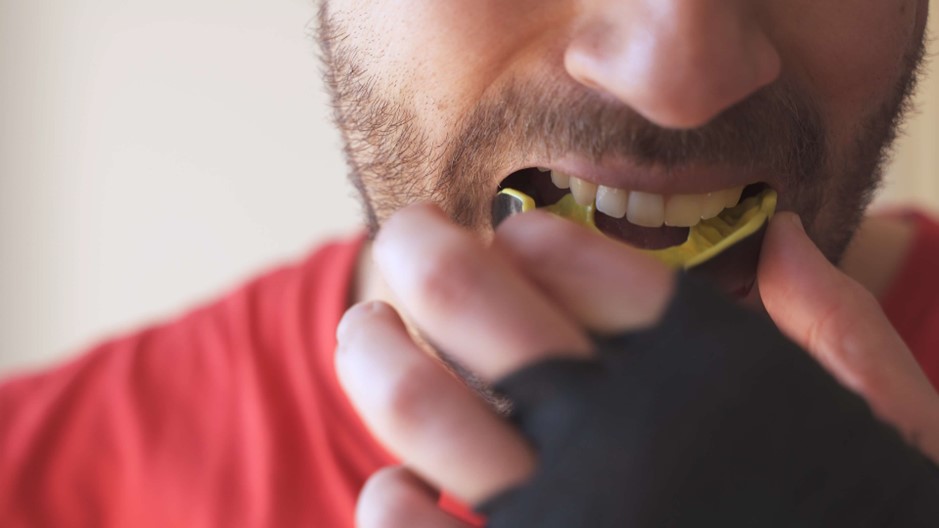How to Protect Your Teeth During Sports and Activities
Sports are great for staying active, healthy, and socially engaged, but they also carry a risk for dental injuries. A stray elbow in basketball, a hard fall from a bike, or an accidental collision on the soccer field can quickly turn into an emergency trip to the dentist. That’s why protecting your smile is just as important as protecting your knees or head. With smart mouthguard use, you can keep your teeth safe while still giving your all to every game.

Why Teeth Protection Matters in Sports
Oral injuries during sports are more common than most people realize. Once a permanent tooth is damaged, it rarely heals on its own. That’s why dentists emphasize prevention over cure. Taking steps to protect your teeth helps you:
- Avoid painful dental emergencies.
- Save money and time by preventing the need for restorative care.
- Keep your natural smile intact for years to come.
Common Dental Injuries in Sports
Athletes often underestimate how easily a tooth injury can occur. Some of the most frequent issues seen in sports dentistry include:
- Broken or chipped teeth: A direct hit can fracture a tooth, sometimes exposing sensitive nerves.
- Tooth loss: Knocked-out teeth require immediate attention for the best chance of saving them.
- Soft tissue injuries: Impact with equipment, the ground, or another player can cause teeth to cut into the lips, cheeks, or gums.
- Jaw injuries: A blow to the face can shift your bite and cause pain or stiffness.
Mouthguards Are Your First Line of Defense
Mouthguards are the most effective form of oral injury prevention in sports. Research shows that athletes who skip a mouthguard are 60 times more likely to suffer dental trauma. A properly fitted mouthguard cushions impact, protects your teeth, and reduces the risk of jaw injuries.
When to Wear a Mouthguard
Dentists recommend wearing mouthguards when participating in the following:
- High-energy sports like football, basketball, soccer, hockey, and wrestling
- Activities prone to falls and fast movement, like mountain biking, gymnastics, or skateboarding
- Any sport where equipment or player contact can reach your face
Types of Mouthguards
A variety of mouthguards are available today, but not all offer the same level of safety:
- Stock mouthguards are pre-formed, inexpensive options you can buy off the shelf. However, they’re often uncomfortable and less protective.
- Boil-and-bite mouthguards are moldable to your teeth for a semi-custom fit. Still, they offer limited durability and comfort.
- Custom-fitted mouthguards are created by your dentist using precise impressions of your teeth. They offer a snug, comfortable fit and the highest level of protection.
Protecting Young Athletes
Children and teens face the highest risk of dental injuries during sports. Their developing teeth and jaws are more vulnerable, and a single accident can cause damage that lasts for years. As a parent, you can support your child’s oral health by encouraging consistent mouthguard use and ensuring it fits properly as their jaw grows.
How to Care for Your Mouthguard
Once you invest in a custom mouthguard, keeping it clean is just as important as wearing it consistently. After all, poor care can lead to bacterial buildup and oral health problems. Follow these simple habits to extend your mouthguard’s life and protect your smile:
- Rinse and brush your mouthguard after every use.
- Let it dry completely before storing it in its case.
- Avoid exposing it to heat, which can warp the material.
- Bring it to your dental checkups so your dentist can examine its condition.
What to Do in a Dental Emergency
Even with precautions, accidents can happen.
For a knocked-out tooth:
- Find the tooth and avoid touching the root.
- Rinse gently if dirty, but don’t scrub or disinfect.
- Place it back in the socket if possible, or store it in milk.
- Seek emergency dental care
For chipped or broken teeth, rinse your mouth with water and apply a cold compress. If possible, save pieces of the damaged tooth to take with you to the dentist.
For soft tissue injuries, apply firm pressure with clean gauze to control the bleeding. If it’s still bleeding after 10 to 15 minutes, keep applying gentle pressure and seek dental or medical care.
Additional Oral Injury Prevention Tips
While mouthguards are a great place to start, implement these other safety measures to further reduce your risk:
- Wear a helmet and face shield when cycling, skateboarding, or participating in other high-contact or high-speed sports.
- Practice good oral health habits like brushing, flossing, and visiting the dentist regularly. Healthy teeth and gums are more resilient to injury.
- Stay hydrated to prevent dry mouth, which increases the risk of soft tissue injuries.
Protect Your Smile with S&L Dental
If you or your child plays sports, now’s the time to think about teeth protection. S&L Dental provides custom mouthguards in Scottsdale and Paradise Valley. Our secure, custom-fit appliances are designed to protect athletes of all ages. Schedule your appointment today and take a simple step toward keeping your smile safe season after season.

